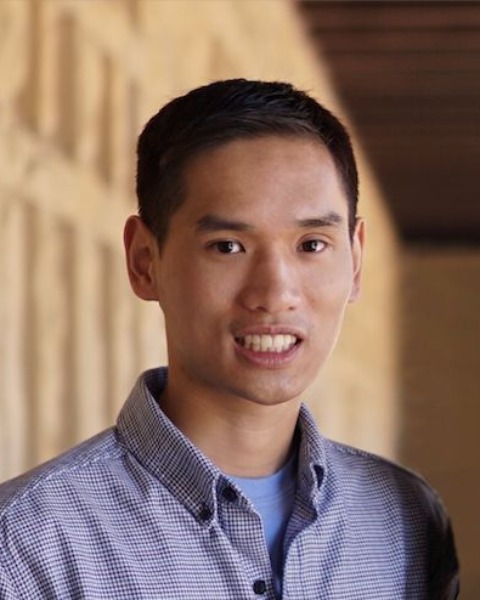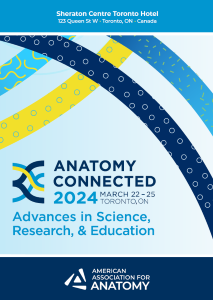Back
There are separate poster presentation times for odd and even posters.
Odd poster #s – first hour
Even poster #s – second hour
Co-authors:
Virtual Posters
Poster: Virtual Posters
Developing an Online International Elective Course Led by Anatomy Faculty to Improve Medical Student Nutrition Education
Friday, March 22, 2024
12:00pm – 7:00pm US EDT
Location: Virtual
There are separate poster presentation times for odd and even posters.
Odd poster #s – first hour
Even poster #s – second hour
Co-authors:
Sean McWatt - Schulich School of Medicine and Dentistry, Western University; Cecilia Brassett - University of Cambridge; Jane Dutton - King's College London; Mandeep Gill Sagoo - King's College London; Takeshi Sakurai - Kyoto University; Dana Stearns - Harvard Medical School; Geoffroy Noel - University of California San Diego; Anette Wu - Columbia University

Matthew Yee
Dental Student
Columbia University
New York, New York, United States
Presenting Author(s)
Abstract Body : Introduction and Objective:
Nutrition affects overall health, yet comprehensive nutrition education is persistently lacking in medical schools. Even when taught, nutrition courses rarely include global cultural perspectives. Physicians are thus insufficiently equipped to support diverse patient populations with nutrition-related guidance. Our objective was to develop a novel online, international, and interactive elective course for senior medical students to learn and review fundamental nutrition topics in a cross-cultural context.
Materials and Methods:
This course was based on formats from the International Collaboration and Exchange Program (ICEP) at Columbia University, which originated in the medical school’s anatomy course. From March to April 2023, students participated via videoconferences in didactic lectures and small group discussions. Lectures included foundational nutrition topics relevant to human anatomy and physiology. Discussion topics included nutrition-related cultural perspectives and practices. To investigate course outcomes, we administered pre- and post-course surveys to explore student perspectives on nutrition knowledge, cultural competency and health equity, and to direct feedback on the course itself. We included validated Likert scale questions from a Cross-Cultural Care Survey (CCCS). Inductive thematic analysis was conducted for short-response course feedback questions, in which student responses were semantically coded.
Results:
Students (n=40) were successfully recruited from past ICEP participants on four continents (North America, Asia, Europe, and Africa). Compared to the pre-course baseline, post-course Likert scales demonstrated students’ improvement in perceived nutrition content knowledge and ability to provide patients with advice on diet and healthy eating. CCCS Likert scales demonstrated that students gained an improved appreciation for cultural competency practices and health equity promotion. Thematic analysis demonstrated that students also gained an interest in interprofessional education and dietary culture exposure in their medical training.
Discussion:
Teaching nutrition in a synergistically cross-cultural context promotes practices essential for equitable healthcare delivery. Didactic lectures developed students' understanding of nutrition in anatomy and physiology, and small group discussions provided a necessary global perspective. We propose that global student small group learning should be further investigated as an educational method to support cultural competency training. Our novel course format introduces students to multiple dimensions of medicine that are crucial for holistic patient care but are rarely included in traditional curricula.
Nutrition affects overall health, yet comprehensive nutrition education is persistently lacking in medical schools. Even when taught, nutrition courses rarely include global cultural perspectives. Physicians are thus insufficiently equipped to support diverse patient populations with nutrition-related guidance. Our objective was to develop a novel online, international, and interactive elective course for senior medical students to learn and review fundamental nutrition topics in a cross-cultural context.
Materials and Methods:
This course was based on formats from the International Collaboration and Exchange Program (ICEP) at Columbia University, which originated in the medical school’s anatomy course. From March to April 2023, students participated via videoconferences in didactic lectures and small group discussions. Lectures included foundational nutrition topics relevant to human anatomy and physiology. Discussion topics included nutrition-related cultural perspectives and practices. To investigate course outcomes, we administered pre- and post-course surveys to explore student perspectives on nutrition knowledge, cultural competency and health equity, and to direct feedback on the course itself. We included validated Likert scale questions from a Cross-Cultural Care Survey (CCCS). Inductive thematic analysis was conducted for short-response course feedback questions, in which student responses were semantically coded.
Results:
Students (n=40) were successfully recruited from past ICEP participants on four continents (North America, Asia, Europe, and Africa). Compared to the pre-course baseline, post-course Likert scales demonstrated students’ improvement in perceived nutrition content knowledge and ability to provide patients with advice on diet and healthy eating. CCCS Likert scales demonstrated that students gained an improved appreciation for cultural competency practices and health equity promotion. Thematic analysis demonstrated that students also gained an interest in interprofessional education and dietary culture exposure in their medical training.
Discussion:
Teaching nutrition in a synergistically cross-cultural context promotes practices essential for equitable healthcare delivery. Didactic lectures developed students' understanding of nutrition in anatomy and physiology, and small group discussions provided a necessary global perspective. We propose that global student small group learning should be further investigated as an educational method to support cultural competency training. Our novel course format introduces students to multiple dimensions of medicine that are crucial for holistic patient care but are rarely included in traditional curricula.

